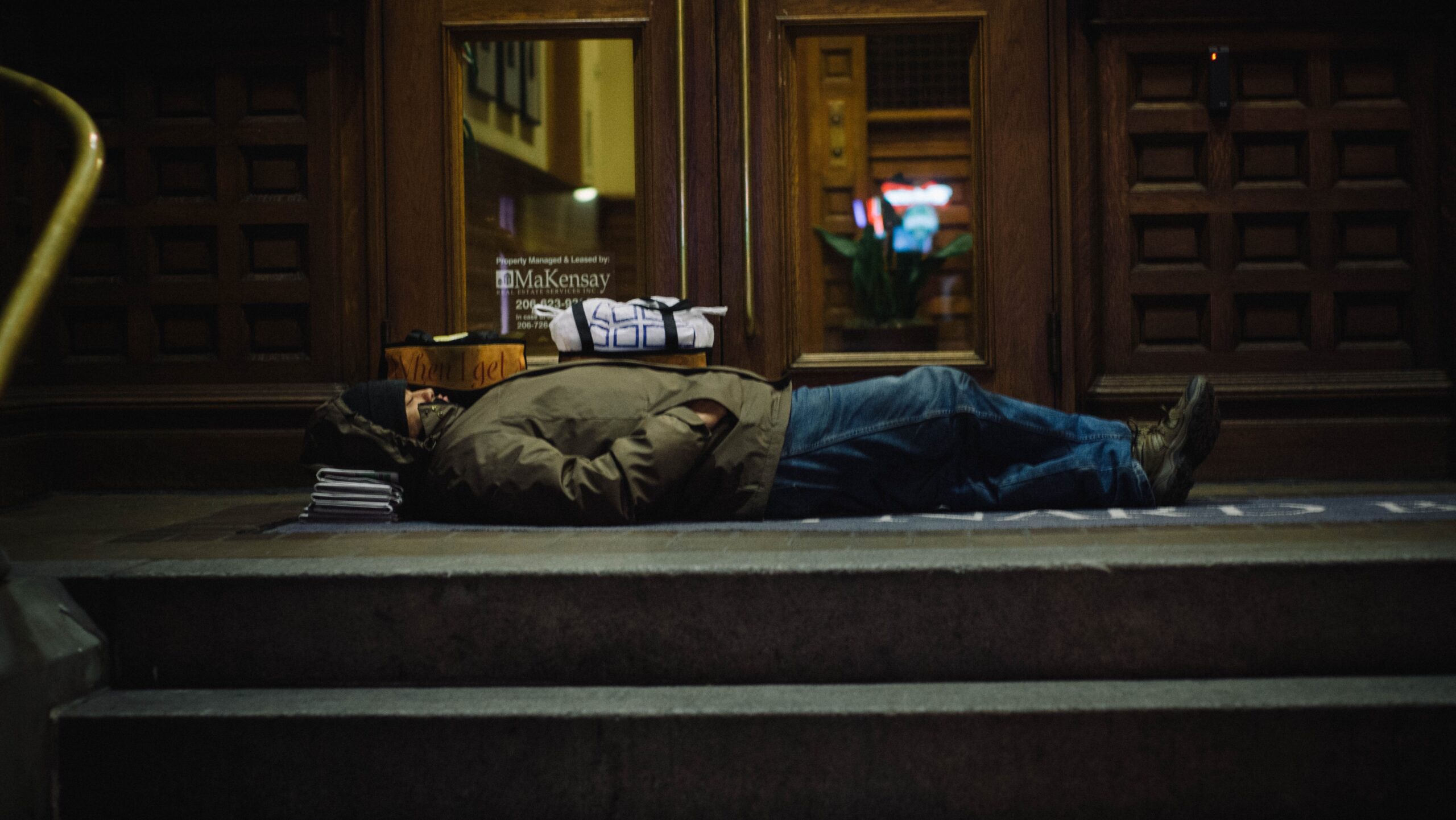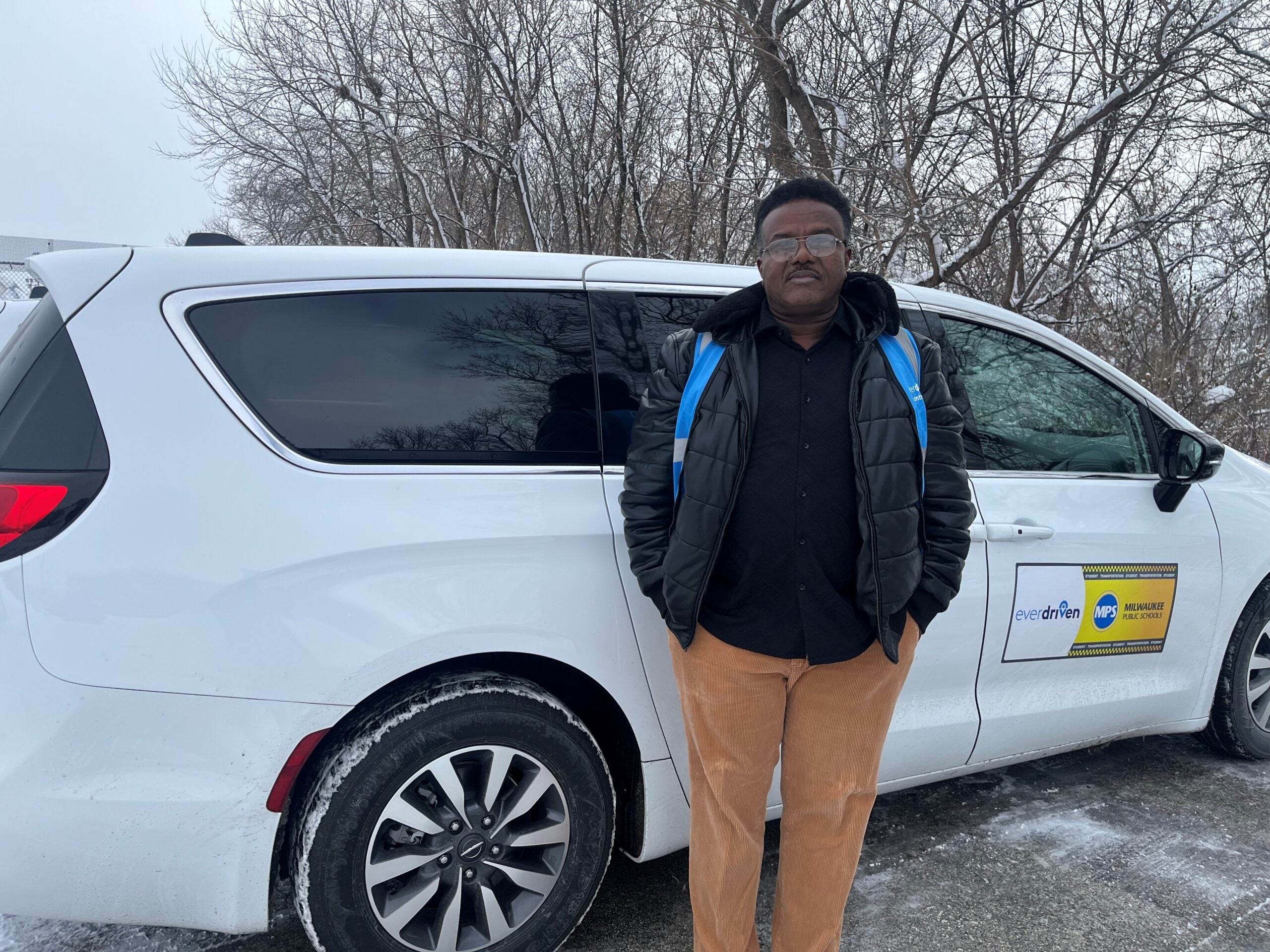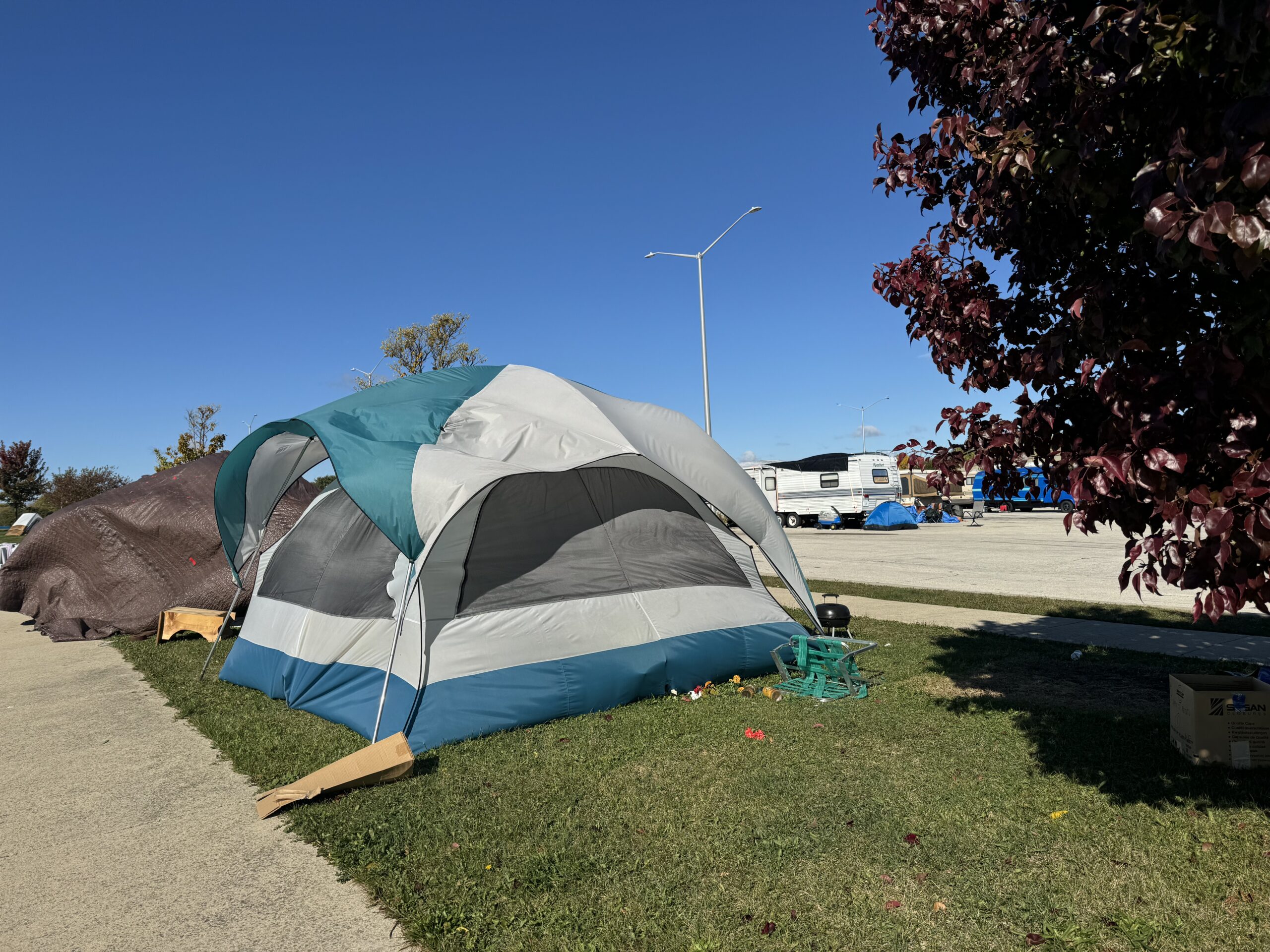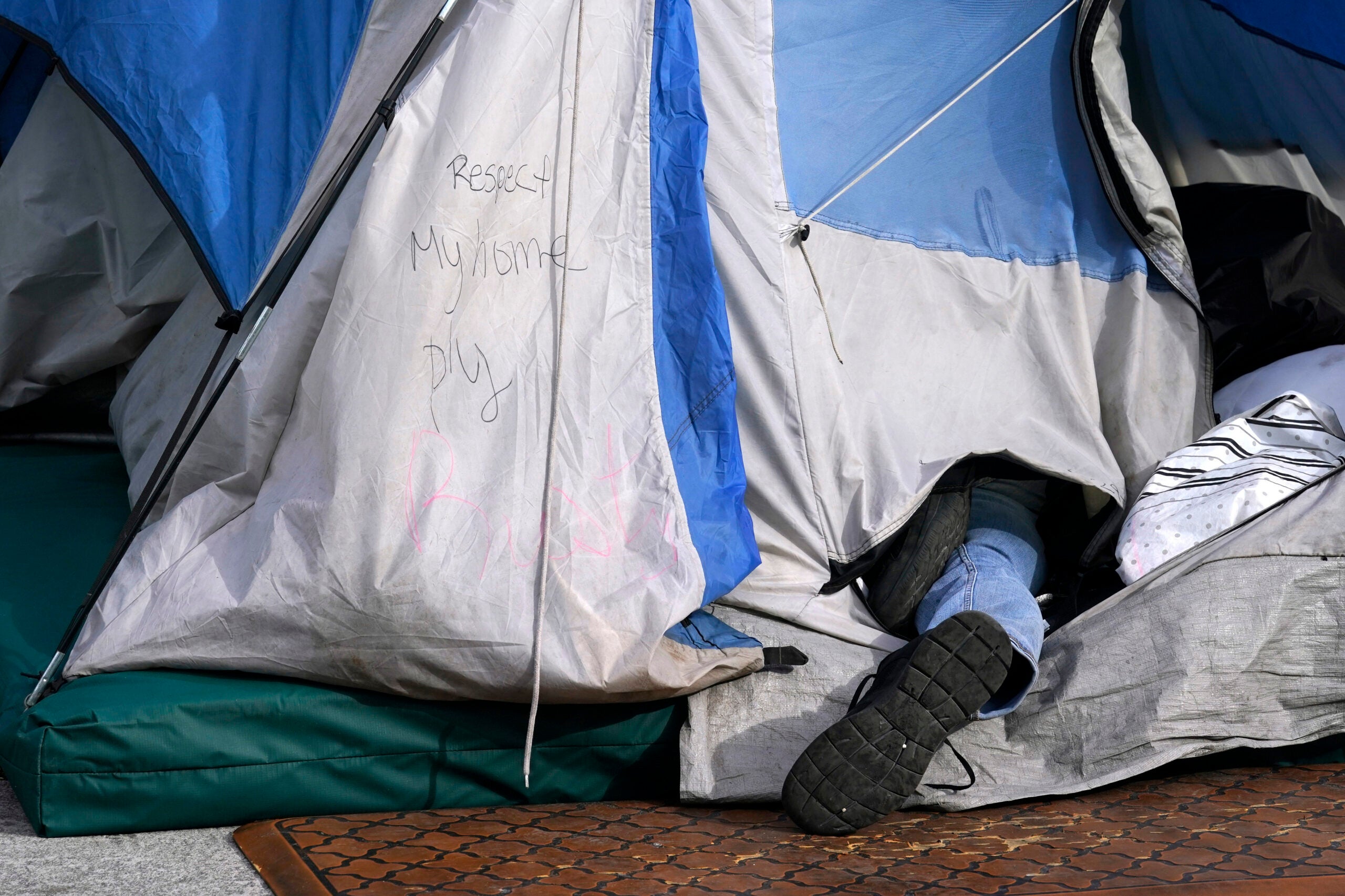The death of Garrick Dixon in November sent shockwaves through the Wausau community, sparking at least one rally, a vigil and a renewed sense of urgency on how best to serve the city’s unhoused population.
Dixon, a 37-year-old man who had been homeless for several years, was found dead in Wausau’s Marathon Park, underscoring the struggles faced by many without stable housing. His death reignited discussions about homelessness in the region, bringing into focus the challenges and potential solutions for supporting Wausau’s most vulnerable residents.
In this first installment of a two-part series, WPR’s Shereen Siewert explores the complex issue of homelessness through the lens of Vicki Harness, executive director of the Marathon County Community Outreach Task Force.
News with a little more humanity
WPR’s “Wisconsin Today” newsletter keeps you connected to the state you love without feeling overwhelmed. No paywall. No agenda. No corporate filter.
Harness has seen the growing impact of homelessness firsthand. Through initiatives like The Marty Bus, the task force provides meals, survival gear and compassion to those living on the streets. The number of clients they serve has doubled in the past year alone.
In an interview with WPR’s Shereen Siewert on “Morning Edition,” Harness pointed to systemic barriers — such as the lack of affordable housing and employment opportunities — that perpetuate the cycle of homelessness.
“It’s hard to get a job without an address, and without a job, you can’t afford a place to live,” Harness told WPR.
In part two of the series, we’ll hear from Wausau Police Chief Matt Barnes, who will discuss the challenges his department faces while working with homeless residents. He will also share his thoughts on collaborative solutions moving forward.
The following interview was edited for brevity and clarity.
Shereen Siewert: In November, 37-year-old Garrick Dixon, who had been homeless for several years, fell asleep and died in Wausau’s Marathon Park. What went through your mind when you heard the news?
Vicki Harness: It was devastating to all of us. Our clients at The Bus knew him and cared about him, and it really just broke everyone’s hearts.
SS: You mentioned The Bus. What is it and what do you do there?
VH: We operate The Marty Bus, which is a bus in downtown Wausau where we serve meals twice a week. On Fridays, we provide survival supplies: warm winter clothing, sleeping bags, tents, tarps, hygiene products and meals that are brought by volunteers.
SS: In April, the Wausau City Council approved two additional police officers as part of a team approach to working with homeless residents. Can you explain your opposition to that plan?
VH: Part of the problem is that by following our clients around and not letting them sleep anywhere or shelter anywhere outside, the police have increased the number of our clients who are incarcerated by 50 percent or more.
In a sense, it’s really costing the city a lot more money to have our clients in jail. Marathon County also has increased expenses because the county is responsible for the jail, and it costs about $60 to $70 a day to keep someone in jail. That means the county is bearing the burden of the homelessness issue.
We’re incarcerating more people for loitering and for urinating in the park or being in parking ramps when they’re not supposed to be there.
SS: What are some of the biggest systemic barriers that prevent people from accessing stable housing in the Wausau area?
VH: It’s a vicious circle in the sense that it is hard to get a job without an address. If you’re trying to find a job and don’t have one, there’s no way for them to reach out to you for interviews.
Not having a job means you have no money to find a place to rent. Landlords don’t want to take on someone who is homeless or has a prior eviction. They’re asking for double security deposits at times to guarantee they get paid. Part of me understands that reasoning, and yet it makes it incredibly unaffordable for anyone to come up with enough money for the security deposit and a month of rent. That can be in the realm of $3,000, just to get into an apartment.
SS: How does your group respond to these kinds of barriers and challenges?
VH: Mostly, our goal at this point is to make sure they have the survival gear they need to live on the street. We don’t have the financial resources to help them actually get into an apartment, but we aid in getting those apartments furnished.
For example, we went to see a client who had just gotten into an apartment and he was sitting in the middle of the room with a blanket and pillow. That was all he had. He had no furniture, no cleaning supplies, no dishes. He had nothing, just an empty room, a pillow and a blanket. We were able to get him furnishings and the things he needed to maintain his apartment.
SS: What kinds of collaboration opportunities do you see with local law enforcement?
VH: We’re not on completely different sides of the issue. We’re doing what we can to help our clients survive and at many times it seems like the police are doing everything they can to make them go away. They’re not going away.
We need to figure out how better to provide services so that they can rise out of homelessness.
SS: What do you think Wausau can do about this issue?
VH: That’s a tough one. There are many things we need, from housing to case management services. “Housing first” sounds way more expensive than it needs to be. We have empty buildings all over the city that could be used for temporary shelters that are better options than the warming center.
The warming center in Wausau is doing the best they can with the resources they have, but we need better facilities that can provide case management services so clients can get the help they need to move forward and not just survive.
SS: Why are you so personally committed to this issue and this task force?
VH: I was at a meeting where this task force, under other management, was trying to open a day center and it was in my neighborhood. I went to the neighborhood meeting and the people were so cruel to the task force it motivated me to join. And I did. I started going to The Marty Bus and volunteering to help with clients.
My mom says I’m a champion of the underdogs, and these people amaze me with their resourcefulness and determination to survive. Once you start to get to know them, it becomes impossible to leave. When the former manager left for family and personal reasons there was nobody to step up, so I did.
If you have an idea about something in central Wisconsin you think we should talk about on “Morning Edition,” send it to us at central@wpr.org.







